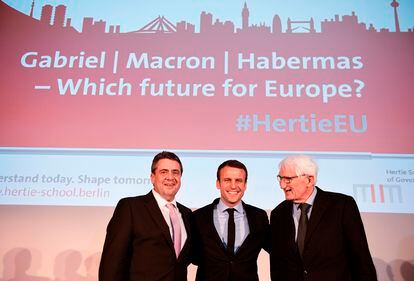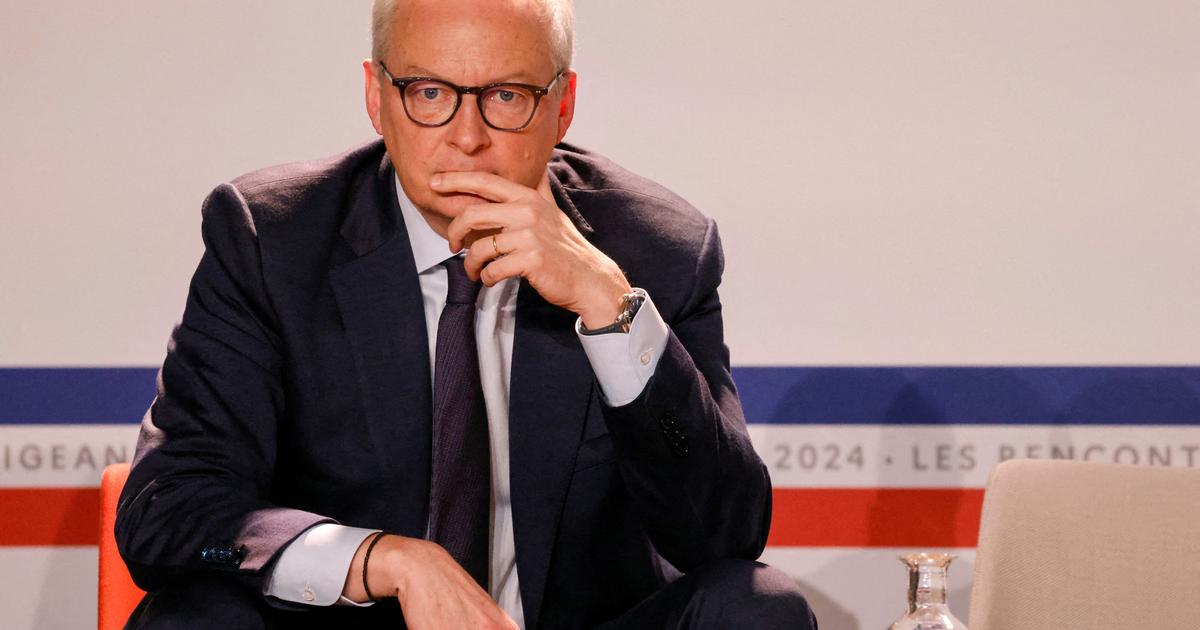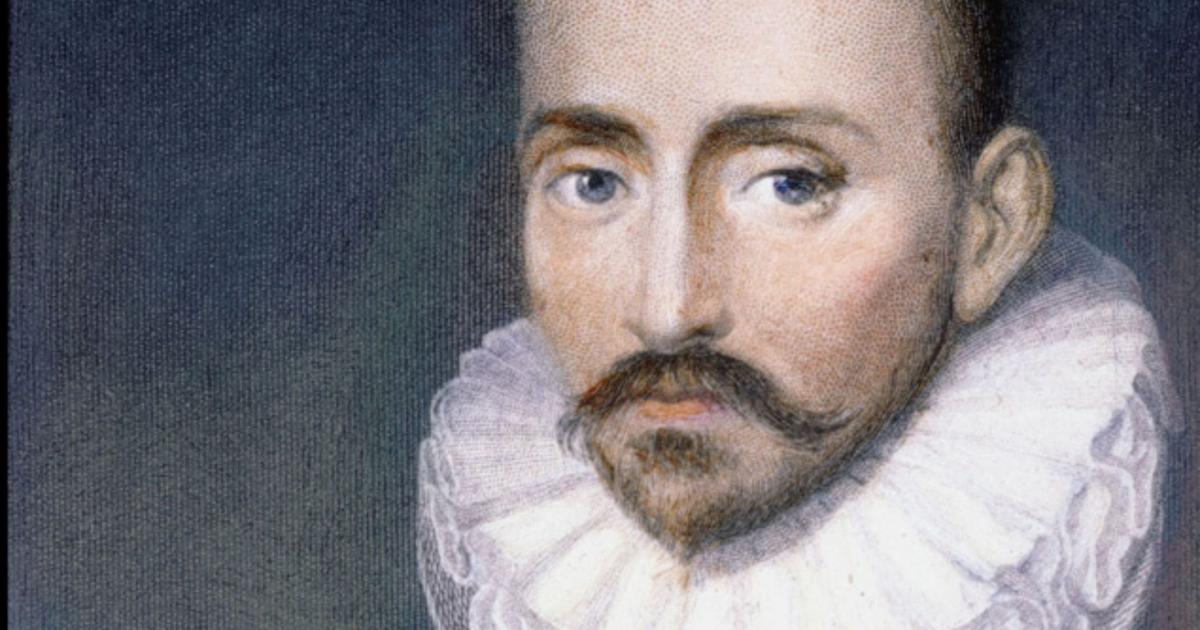The invasion of Ukraine by Vladimir Putin has completely turned world politics upside down, and especially German politics.
During the emergency session of the Bundestag on February 27, German Chancellor Olaf Scholz proclaimed that we were at a
Zeitenwende,
a turning point in history.
Russia's attack on Ukraine meant the beginning of a new era for Europe and Germany.
But in what direction is the story headed?
Scholz promised to increase Germany's defense spending and in March announced the purchase of a large number of the very expensive US F-35 fighter jets.
Sanctions against Russia were subsequently tightened, and Germany has even agreed to send heavy weapons to Ukraine.
But Berlin opposes an outright boycott of Russian oil and gas, and the military hardware it can offer kyiv is limited compared to other European countries, not to mention the United States.
There is always the suspicion of deliberate delays, reluctance and fear.
The situation has been interpreted, in Germany and in other countries, as a genuine crisis of political identity.
In no other Western country has the intellectual class been mobilized like in Germany, nor has there been so much debate and so much criticism of the government's actions on television and in the newspapers.
The situation has been exacerbated after Volodymyr Zelensky criticized Germany's traditional detente policy towards Russia in his speech to the Bundestag in March and after surprisingly candid comments from the Ukrainian ambassador in Berlin.
We know things are getting really serious when Jürgen Habermas, the 92-year-old doyen of philosophy and political commentary in Germany, has entered the fray, for once to defend the government.
The situation has been exacerbated after Volodymyr Zelensky criticized Germany's traditional detente policy towards Russia in his speech to the Bundestag in March and after surprisingly candid comments from the Ukrainian ambassador in Berlin.
We know things are getting really serious when Jürgen Habermas, the 92-year-old doyen of philosophy and political commentary in Germany, has entered the fray, for once to defend the government.
The situation has been exacerbated after Volodymyr Zelensky criticized Germany's traditional detente policy towards Russia in his speech to the Bundestag in March and after surprisingly candid comments from the Ukrainian ambassador in Berlin.
We know things are getting really serious when Jürgen Habermas, the 92-year-old doyen of philosophy and political commentary in Germany, has entered the fray, for once to defend the government.
More information
To what extent do we support Ukraine?
Habermas, the great intellectual, tackles Europe's dilemma
Russia's aggression has given rise to such important discussions in Germany because the country owes its current form to the peaceful end of the Cold War and reunification.
The success of 1989 and 1990 was made possible by nearly two decades of
Ostpolitik,
during which trade and detente with the Soviet Union served to begin to bring down the Iron Curtain.
In order to have good relations with Moscow, one has always had to make a deal with the devil, first with the oppressive Soviet regime in the 1970s and 1980s, and then with Vladimir Putin since 2000. When Russia invaded Georgia in 2008, when it annexed Crimea in 2014 and when it poisoned Alexei Navalni in 2020, Berlin shrugged its shoulders and moved on.
Now, Putin's attack on Ukraine and the extraordinary Ukrainian resistance prevent that strategy from being maintained.
The problem is especially delicate because it was precisely Chancellor Scholz's party, the Social Democratic Party (SPD), then headed by the charismatic Willy Brandt, which launched
Ostpolitik at the end of the 1960s
.
Detente is deeply rooted in the SPD, and is best symbolized by Gerhard Schröder, former chancellor and unrepentant [former] chairman of the board of directors of the Russian state oil company Rosneft [a position he resigned from on Friday [.
But the Social Democrats are not the only ones.
Many voices from the German right have always spoken of the advantages of achieving a
modus vivendi
with Russia, first with the tsar, then with the Soviets, and now with Putin.
For them, Bismarck is the ultimate model of balance between East and West.
In 2013, the far-right Alternative für Deutschland (AfD) published a foreign policy program directly inspired by the Iron Chancellor and which advocated a self-assured national foreign policy but aware of the importance of Russia in German history since the era of Frederick the Great and respectful of Russian interests in post-Soviet states.
This tendency is made even stronger by an undercurrent of anti-Americanism that stands out especially in the extreme left of Die Linke.
And, as has become embarrassingly clear in recent months,
in Berlin there is a general contempt for the national rights of the “small” states of Eastern Europe – in particular Poland and the Ukraine – which have the misfortune of being sandwiched between Germany and Russia.
For their part, German industrial companies like Siemens are clinging to 150 years of profitable business with Russia, a relationship they don't want to see broken by a trifle like the annexation of Crimea.
Now, although all these factors are very German, they have also been present in the rest of the world since the end of the Cold War.
Oil moves much more money than the Russian gas on which Germany depends, and it was the British, American and French oil majors that made huge investments in Russia in the 1990s and 2000s.
In the diplomatic field, the French Gaullist tradition seeks a balance between Washington and Moscow.
In Italy, Russia has always aroused deep sympathy.
And then there's
Londongrad
.
Volodímir Zelenski gives a virtual speech before the members of the Bundestag on March 17. Markus Schreiber (AP)
It would also be stupid to say that
Ostpolitik
has become controversial now, after Putin invaded Ukraine.
The truth is that neither in Bonn nor in Berlin was it ever a dominant strategy.
When Willy Brandt's social-liberal and progressive coalition drew up its foreign policy in the late 1960s, it was harshly criticized by the right.
There was always a balance to be struck.
Chancellors Helmut Schmidt, Helmut Kohl and Angela Merkel, as much as they wanted to have good relations with Moscow, were staunch Atlanticists.
In Germany, being a
Putin-versteher
(“understanding with Putin”) declared is not the most common, but a marginal opinion.
Die Linke and the AfD have strong supporters in the former GDR, but neither seems likely to ever form part of the national government.
It is significant that the Party of the Greens, once considered a Trojan horse of German neutrality and nationalism, has long espoused a foreign policy that is defined by giving absolute priority to human rights and, in consequently, for unhesitatingly aligning itself with “the West.”
Bold stereotypes fail to capture the complexity of German politics.
The problem of maintaining a balance with Germany is real, and both foreign relations and democracy are controversial in the country, fortunately.
And there is no one who embodies that story as solidly as Jürgen Habermas.
Half a century ago, Habermas emerged as the West German heir to the critical theoretical current known as the Frankfurt School, named after the Institute for Social Research founded at the University of Frankfurt in 1929. From the Institute's roots in the interwar Marxism, Habermas, in the 1960s and 1970s, focused his critical theory not on work, but on communication.
His lifelong concern has been with the possibility of reason and the emancipation inherent in language, discourse, and deliberation.
Driven by that commitment to a tradition dating back to the Enlightenment, in the 1980s he distanced himself from radical French thinkers like Michel Foucault and Jacques Derrida.
In the late 1990s he supported NATO's bombing of Yugoslavia.
But to infer that Habermas is a conformist is to completely misunderstand his philosophy, his politics and, above all, his public presence in modern Germany.
Habermas has been an argumentative and sometimes controversial figure in the public life of the Federal Republic for 70 years.
In the 1950s and 1960s he questioned Martin Heidegger's links to Nazism and Cold War bigotry.
In 1968 he mediated with radical students.
In the 1970s he formulated a complex theory of the legitimation crisis.
In the 1980s he opposed nuclear rearmament and denounced the nationalist and revisionist turn in historiography, which threatened to relativize the singular character of the Holocaust.
At the time of national unification, in 1990, he demanded that no mere
Anschluss be made
[annexation] of East Germany, but rather that there be a constitutional convention.
In the late 1990s, his proposal—along with Joschka Fischer—that the Greens approve intervention in Yugoslavia, in the name of the duty to protect, was a controversial and difficult position to follow.
In 2003, Habermas joined forces with Derrida against the Iraq war.
Between 2010 and 2015, after having long criticized the judicialization of German politics under the authority of the powerful Constitutional Court, he denounced the technocratic drift of eurozone politics.
This is not the path of a conformist.
In 2022, Habermas fears that the right will be strengthened again with the excuse of enthusiasm for the Ukrainian resistance.
And, once again, his long and thoughtful article on April 28 in the
Süddeutsche Zeitung
[and in
Ideas
]
was the target of an avalanche of criticism.
Like many other times, the outrage found a platform in the pages of the conservative daily
Frankfurter Allgemeine Zeitung.
This time Habermas is accused of upholding a battered and discredited tradition of West German politics, colluding with Putin and clinging to old preconceptions about nuclear war, while patronizing the Ukrainians and their supporters among the young Germans.
It did Habermas no favors that his article was published alongside an open letter with no head or tail, expressing a defeatist position.
Radical theorist and multimedia activist Alexander Kluge managed to tell a radio interviewer that the 1945 surrender had taught him that surrender was not wrong.
He forgot to mention that his hometown surrendered to the Americans.
Alice Schwarzer, a huge figure in German feminism, insists that Zelensky is a provocateur.
The two signed an open letter questioning the Ukrainian government's right to tell Germany what the right policy was and even Zelensky's right to speak on behalf of his people, who, the German signatories imagined, might prefer a high immediate fire and subsequent negotiations.
Habermas did not sign the letter.
He is no pacifist.
The objection to violence has a limit, which is when fundamental freedoms are at stake.
Habermas acknowledges that the supply of arms to Ukraine is essential.
What he criticizes is not the calls for further action, but the tone in which they are made.
He is concerned about "the safety with which Germans filled with moral outrage attack an introspective and secretive federal government."
That security betrays itself.
All decent people will agree that Putin's aggression must not succeed.
But we must also agree that a war with Russia is inconceivable.
Russia is a nuclear power and the possibility of escalation is frightening.
Any bona fide political intervention, Habermas insists, has to address this dilemma head-on.
For the West, Habermas wrote in his article, "given that it has decided to be a belligerent party in this conflict, there is a risk threshold that prevents it from committing itself to sending all the necessary weapons to Ukraine... Those who do not take this threshold into account and insist on continuing to aggressively pressure the German chancellor ignore or do not understand the dilemma in which this war has plunged the West, which, with its decision - morally justified - not to fight in the conflict, has tied its feet and hands".
Faced with this dilemma, the impatience of Scholz's detractors — among whom, in addition to Ukrainian spokesmen and right-wing hawks, are many of the old pacifists in the ranks of the Green Party — is not innocent.
What they are calling into question, Habermas says, is "the general strategy of German politics to prioritize dialogue and peace," which should never be taken for granted.
It cost a lot to get and, as Habermas points out, "has received constant criticism from the right."
Those who allege that thinking about Russia's nuclear threat is giving in to blackmail are right.
But they make the mistake of believing that this is the end of the discussion.
In reality, all they do is reformulate the problem.
As Habermas indicates, “those who oppose exercising a 'politics of fear' in a rational and justified way have already joined the type of argument that Chancellor Olaf Scholz rightly insists on: that of a thorough, politically responsible and objectively comprehensive”.
This mode of argument is typical of Habermas.
On the one hand, it offers a sharp political criticism and, on the other, it exposes the essential conditions for a rational consensus.
He also does another typical thing of his, which is to propose an analysis of the sociopolitical reasons for the current confusion.
The main cause of the intensity of the German debate is, according to Habermas, that the war has unleashed, more than a decisive historical turn —in the words of Scholz—, a confrontation of different temporalities.
A clash, as Habermas says, between "contemporary mentalities but not simultaneous from the historical point of view."
Part of the tension comes from Germany itself.
As critics allege, and Habermas is willing to acknowledge, his own generation lives with the indelible political imprint of the atomic age and its aftermath, which spelled the end of conventional military history.
The children and grandchildren of that generation inherited a culture even more convinced of the force of international law.
And Habermas's interpretation is that it is this commitment to the rules that makes them demand that Putin appear before the Court in The Hague.
What is incongruous is that it is precisely Habermas who has to remind them that neither Russia nor the United States accept the authority of the international court and that demanding that Putin be tried as a war criminal would be equivalent to a declaration of war.
That the former pacifists now turn the defense of the Ukraine into a just crusade does not mean, says Habermas, that they have become realists, but rather that they have turned realism inside out.
The common denominator is a passionate commitment to uphold the standards in the face of the toughest situations.
Then there is the enigmatic figure of Putin himself.
What era does it belong to?
Is it a creature of the deep history of Russia?
Or, as Habermas prefers, a resentful careerist, emerged after the fall of Soviet power?
Does he represent a real nuclear danger, willing to go the distance?
Or is this all a bluff?
Our disorientation, in part, is due to the fact that we do not know how seriously we should take it.
Finally, there is the great surprise that this crisis has brought us, which is Ukraine with its extraordinary resistance.
As Habermas underlines, “in our admiration for Ukraine there is also an element of awe at the certainty of victory and the unwavering courage of soldiers and conscripts of all ages, determined to defend their homeland from a militarily far superior enemy.” .
Then-German Foreign Minister Sigmar Gabriel, French President Emmanuel Macron, and German philosopher Jürgen Habermas at the Hertie School of Governance on March 16, 2017. TOBIAS SCHWARZ (AFP via Getty Images)
In Habermas's opinion, this phenomenon is yet another way of expressing the contemporaneity of the non-contemporary.
Ukraine is in the phase of creating a national state, Germany has already surpassed it a long time ago.
When we see the spontaneous reactions of enthusiasm and solidarity with Ukraine, we Germans and all Westerners should take into account that difference and what it implies.
We are moved by the heroism of the Ukrainians, and that shows the despondency that pervades our politics.
But we shouldn't just dismiss our post-heroic culture out of hand.
It is a logical historical consequence of living under the NATO umbrella.
Instead, the desperate courage of the Ukrainians reflects that they do not.
In these circumstances, Habermas wonders,
“Isn't it a form of self-righteous self-righteousness to bet on Ukraine's victory against Russia's murderous war without taking up arms ourselves?
The bellicose rhetoric does not agree with the stands from which it is used”.
This distance between the nation-states already established and the one that is yet to be established has consequences for both parties.
We can't keep cheering for blood from the safety of the stands.
But Ukraine must also review its diplomatic tactics.
Habermas has been accused of implying that Volodymyr Zelensky and the Ukrainian information warriors are manipulating us with a clever media operation and exercising moral blackmail, which of course is true.
There's no need to be ashamed of it either.
kyiv is fighting the information battle with the same determination and skill that it shows on other fronts.
You are doing exactly what you are supposed to do.
What Habermas wants to emphasize is something more subtle.
The Ukraine takes advantage of the guilt of the Germans for their passivity.
But Germany's position is also explained by its history.
As Habermas points out, “the allies should not reproach each other for having different political mentalities that historically do not coincide because some are still in the process of building a national State and others have already overcome that process of formation”.
Ukraine and Germany have to learn to relate despite this gap.
And that requires tact, insight and diplomacy.
Habermas says: “… We must accept that these differences are a reality and take them into account when cooperating.
As long as those differences that define perspective remain in the background, they will only create emotional turmoil."
You could see that in the reaction to Zelensky's shocking speech in the Bundestag, in which he called Germany's attention to the memory of the Holocaust worthless talk.
Although the government and the Bundestag did not spend a minute discussing the speech, the population did react, according to Habermas, with a confusing mix of "clear signs of approval" and spontaneous identification with Zelensky's position and a defensive and proud attitude. .
Zelensky's criticism was a forceful attack, which, with its "forgetfulness of the historical differences of perception and interpretation of war, not only leads to important errors when relating to the other, but, even worse, to a mutual misunderstanding of what the other really thinks and wants”.
Habermas is warning his fellow citizens against the illusion that, through Ukraine, there is a way back to the future.
The post-heroic attitude is a historically logical reaction to the history of Europe since the end of World War II and the Cold War.
Trying to bridge the emotional and cultural gap that separates Germany from Ukraine amid the constant reality of nuclear confrontation is unrealistic and dangerous.
The problem that we must solve collectively is how to offer our genuine support while being aware of the distance.
It could be said that Habermas exhorts us to unravel the politics of alliances on the international stage and under the shadow of the nuclear threat.
What is clear is that we have to find a constructive solution to the dilemma posed by the war, a solution that, as Habermas says in his last sentence, must be defined in terms of an essential aspiration: “Ukraine 'must not lose' this war” .
His project of building a nation state must continue.
As for Europe, its task is different.
What the contrast with Ukraine should bring to light is not so much the lack of a properly heroic national identity as the lack of post-national capacities in the EU.
As Habermas points out, if those who have proclaimed that we are at a historical turning point are the same ones who have long advocated that Europe must be able to defend itself militarily to ensure that "its social and political way of life" is not destabilize from without or empty from within.
That would not be a response comparable to Ukraine's heroism, but it would at least allow Europe to conduct politics independently of both the United States and Russia.
Right now, American politicians are dying to give tens of billions of dollars to Ukraine to fight Russia.
The fact that they can agree on that and not on health policy or climate change is a symptom of America's dysfunctional state of affairs.
But we don't know what US politics will bring us in the short term.
Europe may find itself, sooner rather than later, facing a disorienting clash of historical temporalities and political time, not in Eastern Europe, but across the Atlantic.
As Habermas reminds us, Macron's re-election has given us another chance.
Will Europe take advantage of it?
faced with a disorienting clash of historical temporalities and political time, not in Eastern Europe, but on the other side of the Atlantic.
As Habermas reminds us, Macron's re-election has given us another chance.
Will Europe take advantage of it?
faced with a disorienting clash of historical temporalities and political time, not in Eastern Europe, but on the other side of the Atlantic.
As Habermas reminds us, Macron's re-election has given us another chance.
Will Europe take advantage of it?
Adam Tooze
(London, 1967) is Professor of History at Columbia University, where he directs the European Institute.
His latest book is 'The blackout.
How the coronavirus shook the world economy', by Editorial Crítica.
© The New Statesman.
With the collaboration of Public Agenda.
Translation by María Luisa Rodríguez Tapia.
Sign up for the weekly Ideas newsletter
here .
Exclusive content for subscribers
read without limits
subscribe
I'm already a subscriber






